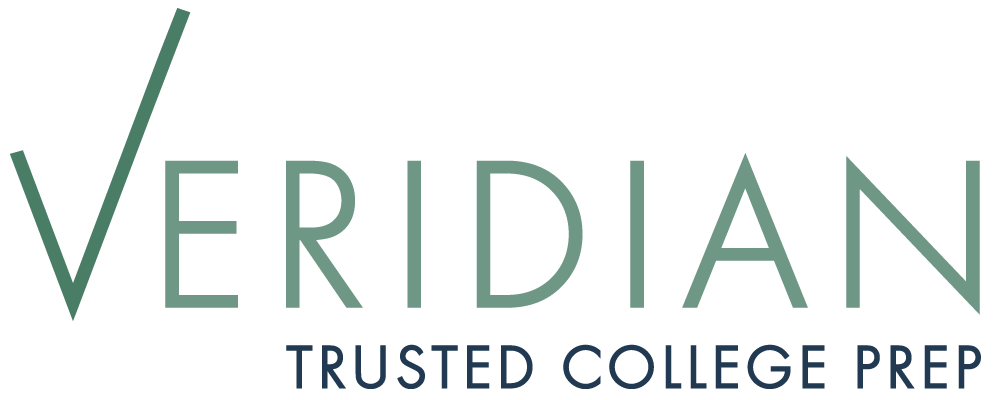Real College Essays That Work: Boston College
Going Beyond The Resume
When it comes to writing college application essays, most students want to play it safe. They often approach the task like they do a test, where there’s a right answer to give, and they merely need to tick off the boxes to cover all the points.
This often leads to an essay that’s simply a rehash of their resumes: explaining what they learned in their favorite AP classes, talking about their favorite sports and activities, and trying to cram as many accomplishments into 650 words as they can.
This is a mistake. College admissions officers already have all of that information, so your essay is an incredible opportunity to show them not just that you can write well, but also to provide insight into your true personality. Rather than focus on something they already know about you, it’s a much better idea to reveal something that wouldn’t otherwise be obvious from your application.
I recently helped one student develop and refine his essay to address this issue. N. was a soccer and tennis player in high school, and these were his main extra-curricular activities. He was not, however, being recruited to play in college, and he was interested in selective schools. For this reason, I encouraged him to scrap his first soccer-related essay to embrace a topic that highlighted an intellectual interest and let readers know that he was more than just an athlete, and more than just an item on his resume.
The Essay
The Student: N.S.
Accepted to: Boston College (attending), Tufts University, Washington University of St. Louis
The Common App Prompt 7: Share an essay on any topic of your choice. It can be one you've already written, one that responds to a different prompt, or one of your own design.
I have never seen a Disney film. The Lion King and Snow White and the Seven Dwarfs slipped through the cracks of my childhood. Most of my friends tell me I missed out, but I don’t think so. Even as a seven-year-old, I loved visiting museums, watching history documentaries, and reading historical accounts of people achieving unimaginable feats of bravery. Walking through the halls of the American Museum of Natural History, I would pour over every description card, wanting to learn more about the treasured artifacts. I imagined the Great Canoe slicing through the waters off the coast of North America and the Rapa Nui moving the monumental Moai statues across the vast grasslands on Easter Island. These historical treasures sparked my imagination, evoking images of powerful civilizations. Yet, these cultures and historical episodes seemed so far removed from my own that they felt impersonal. It was not until I began delving into my own family’s history, that I realized that I also had ties to the history depicted in museums and documentaries.
Having a Danish father and a Japanese mother, I’ve been immersed in two very diverse and rich histories my entire life. During summers in Denmark, my Danish grandparents have recounted their own stories of heroism. As a member of the Danish resistance movement during the German occupation of Denmark, my grandfather risked his life to help Danish Jews escape by sea to neutral Sweden. My Japanese grandfather described the bombing raids in Tokyo in 1945 that decimated his school and killed many of his teachers and classmates. The connections I felt with my grandparents and with my own past deepened when I envisioned the history I had read about in textbooks through their eyes. I began to appreciate what their lives were like when they were my age, and I felt admiration and pride for their own small “feats” of bravery. I felt closer to them in a way that I now find invaluable. Moreover, listening to my grandparents’ very personal wartime stories helped me develop a more nuanced understanding of the WWII events I had learned about in classes.
Now, when I read about historical events, I delve into the people behind the stories. And when I meet people, I share my own history and ask about theirs. Last year, when meeting with my AP U.S. History teacher and advisor, Mr. _____, I shared some of these stories about my grandparents’ lives during WWII and I also asked him about his childhood and his interest in history. I was intrigued to learn that Mr. _____ had worked at Thomas Jefferson’s Monticello, which sparked his desire to study history at the University of Virginia. But even more fascinating was learning that he had studied Japanese history and language in depth and is now an expert on Japanese pop culture. I no longer view Mr. _____ solely as an educator, but as someone I can relate to and connect with about our shared stories and interests. As I learned from my grandparents, what makes history special is not the spectacular events, but the individual narratives and experiences. And by sharing stories of our pasts - history - we can bring people closer together in the present.
For me, history is not merely a compilation of dates and facts of hard-won battles and ground-breaking inventions; it is about people and their everyday stories. It is the magic of stories that can evoke memories and emotions and take you out of your own world. It is the connections between diverse individuals, past and present, that make me love history. History is constantly evolving, but I know that no matter what happens in the future, we will always be tied to the past and to each other.
Why It Works
When N. let go of the idea that he had to write about his main sports activities, he was freed up to show off a whole other aspect of his life. Here’s why his new idea for an essay was such a success:
1. Goes Beyond the Obvious Extra-curricular/resume list
The words “soccer,” “tennis,” and “sports” appear zero times in this essay, and that’s a good thing. Not because writing about sports is inherently a bad idea, but because these activities were already all over the rest of the application, highlighted in the awards and activities entries on the Common App. The essay is the perfect place to write about something completely different.
In writing about his love of history, Nick didn’t rely on his grades to get this point across. Instead, he provided interesting facts about his family heritage and personal anecdotes about how he relates to other people through discussions of history. These details provide much deeper insight into how the writer thinks and interacts with the world — exactly the sort of information admissions officers want to know as they build a new class of students.
2. Paints a vivid Picture using great details
This essay follows a classic rule of creative writing: Show, don’t tell. That means that, instead of just saying, “I like museums,” the essay shows the reader what that looks like in actions with carefully chosen details. For example, the reader can feel N’s genuine excitement as he wanders the museum’s corridors and imagines “people achieving unimaginable feats of bravery.”
Descriptions such as the “Great Canoe slicing through the waters off the coast of North America and the Rapa Nui moving the monumental Moai statues across the vast grasslands on Easter Island" provide fascinating detail that help us “visit” the museum with him.
Later on in the essay, N. also lets us into his head, by including details from the writer’s personal conversations really bring the essay to life. He also did a great job choosing the most interesting and important details of his family’s history, which makes the essay irresistible to the reader, who will definitely want to know more. This is a breath of fresh air for admissions officers, who read dozens of essays every day and are just waiting for something unique and interesting to capture their attention.
3. Explaining the significance and making connections
Because N. is so interested in history, it would be tempting for him to just fill up his word allotment with family details and “fun facts.” But this would not make for a complete essay. Good writing doesn’t just rest on vivid details — it also puts those details into context for the reader by explaining what all of these details mean and how it connects to the present.
In this essay, the final paragraph ties everything together by explaining why he loves history so much. He connects the intellectual pursuit (“dates and facts”) to his emotions and big-picture sense of his place in the world. This careful conclusion lets the reader know that he has thought deeply about the topic and developed a cohesive philosophy — a great way to highlight the intellectual development that colleges are looking for.
The Bottom Line
In the end, turning away from writing about soccer and instead embracing the more personal details of his love of history allowed N. to show a lot more of his personality in his writing. He was able to highlight facets of his intellectual growth and his unique personality in ways that may not come through via his transcript alone. It’s a lot to ask of just 650 words, but this essay hits all the marks.
If you need help boosting your general writing skills, or want help with college essays and supplements please reach out! It’s never too early to shore up the basics in preparation for those all-important Common App. essays in your senior year.

